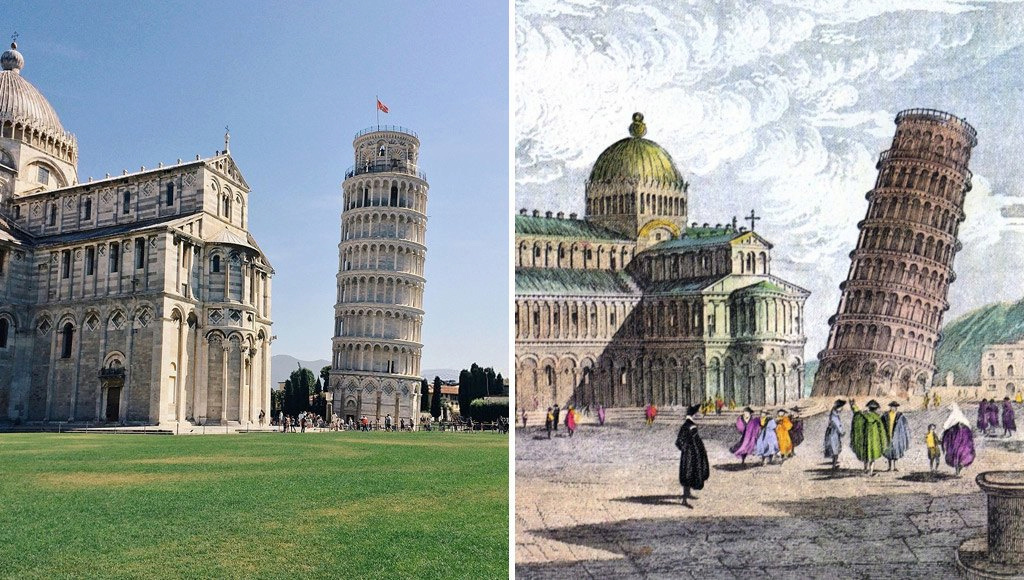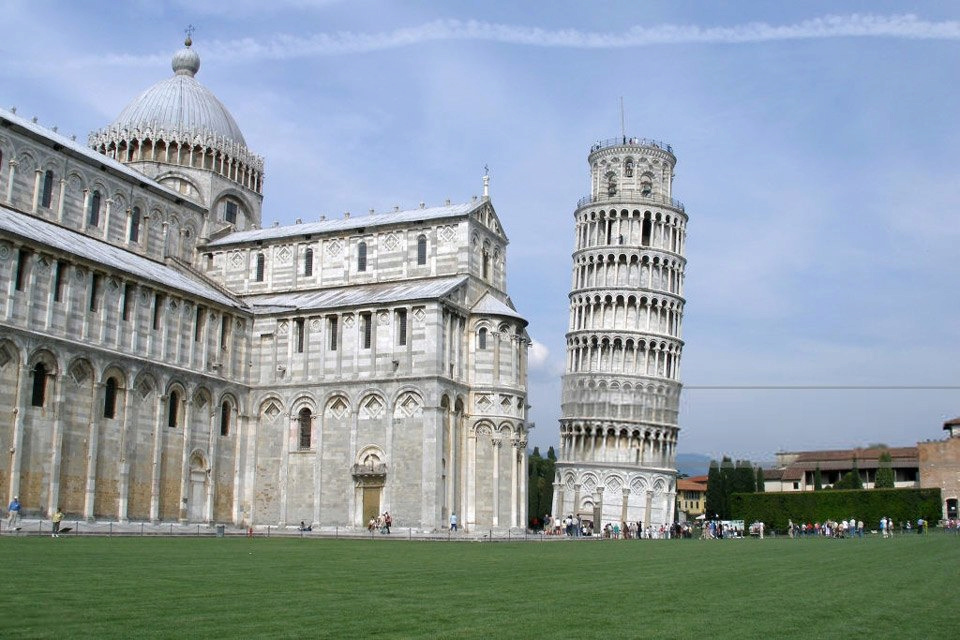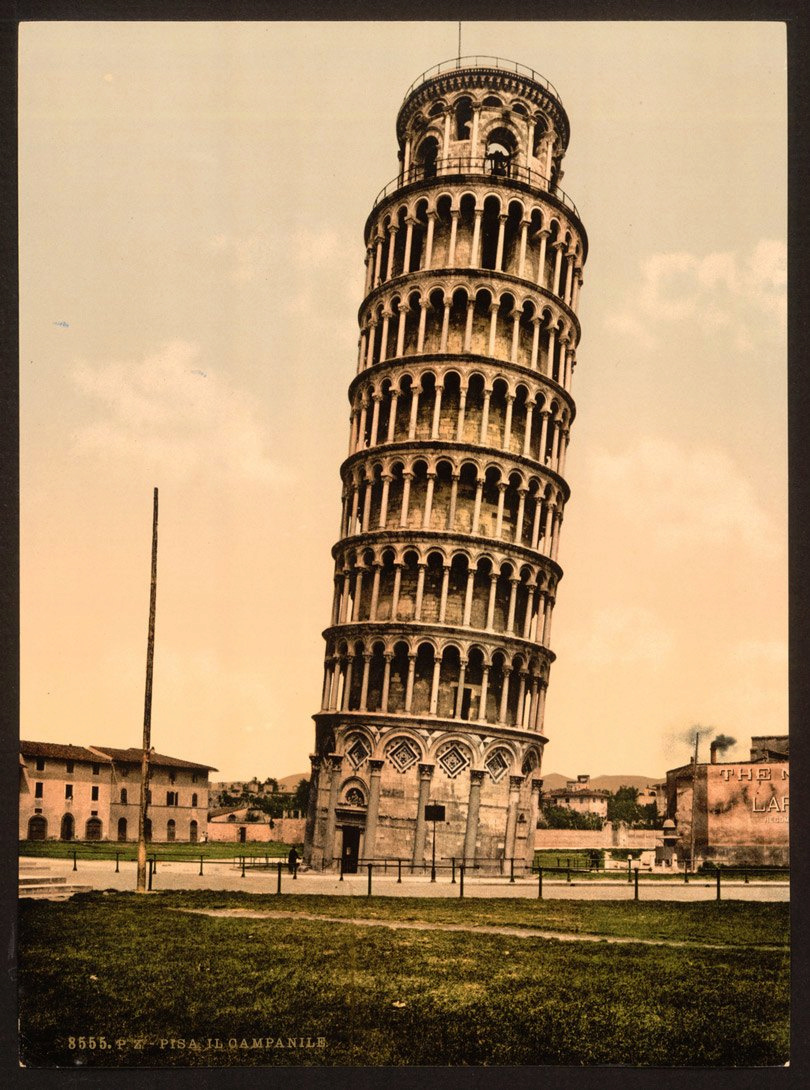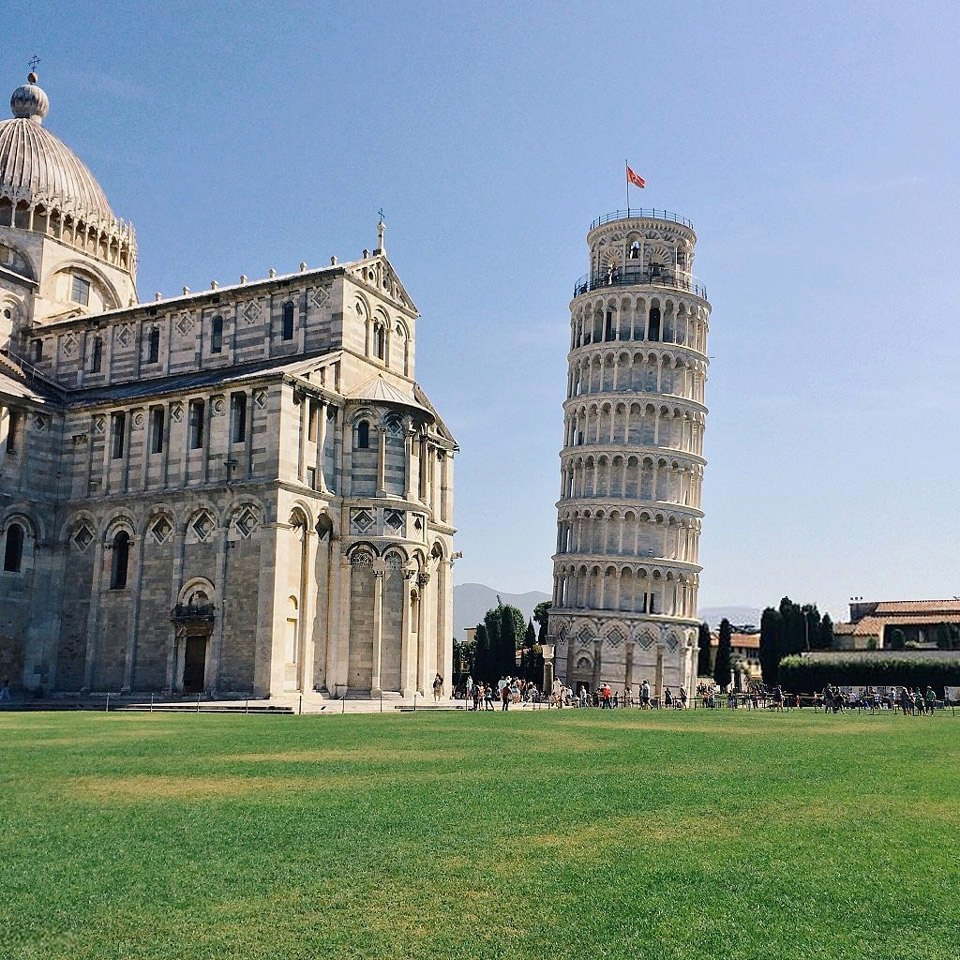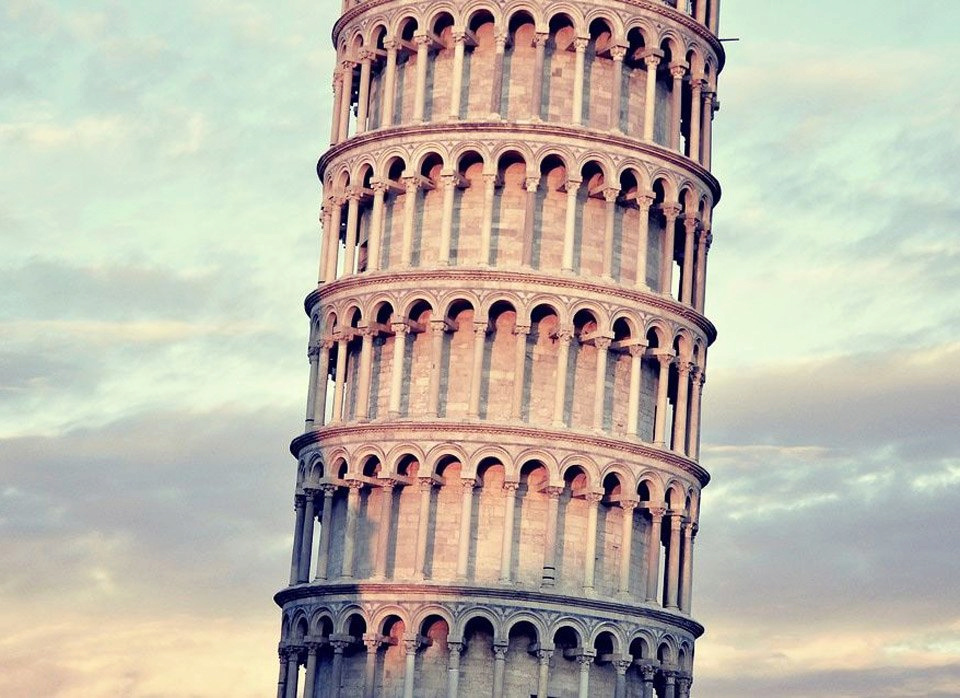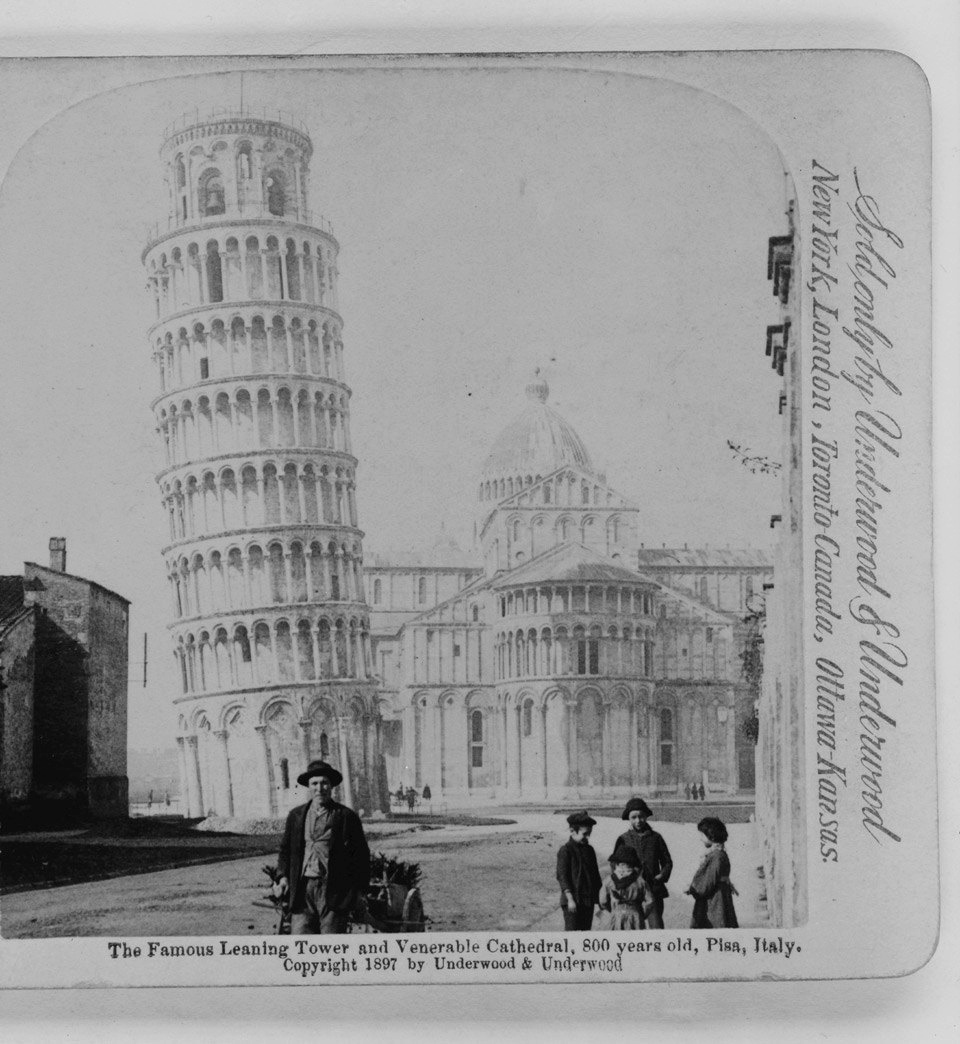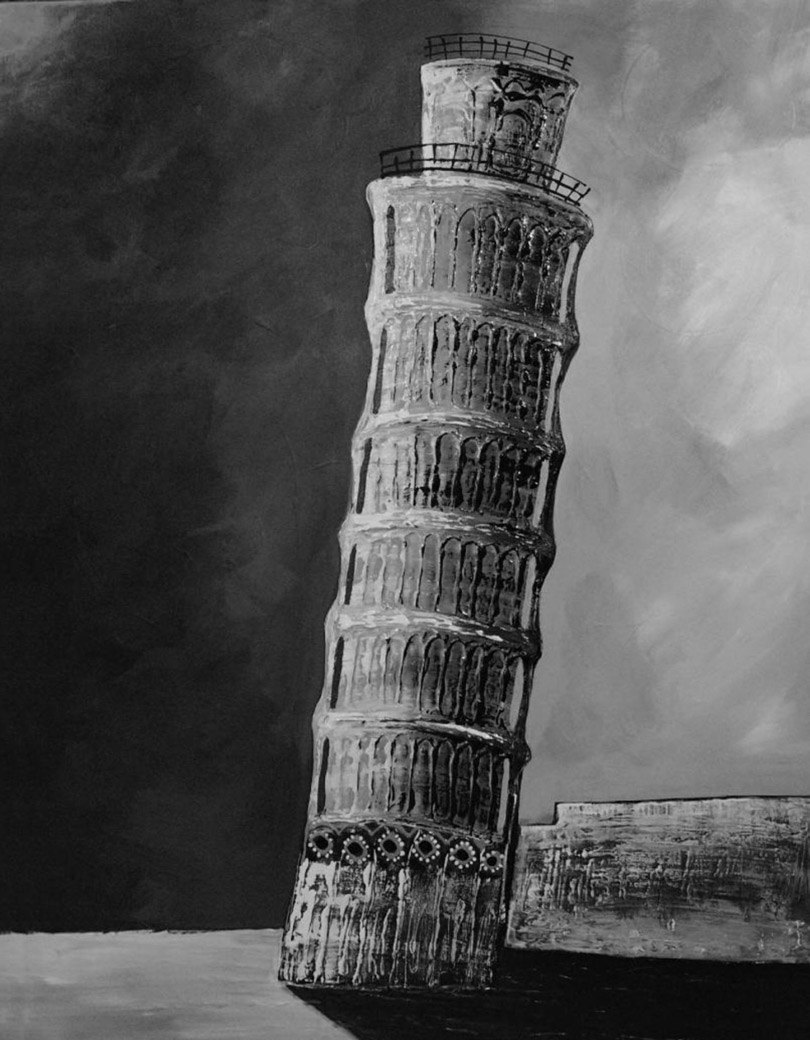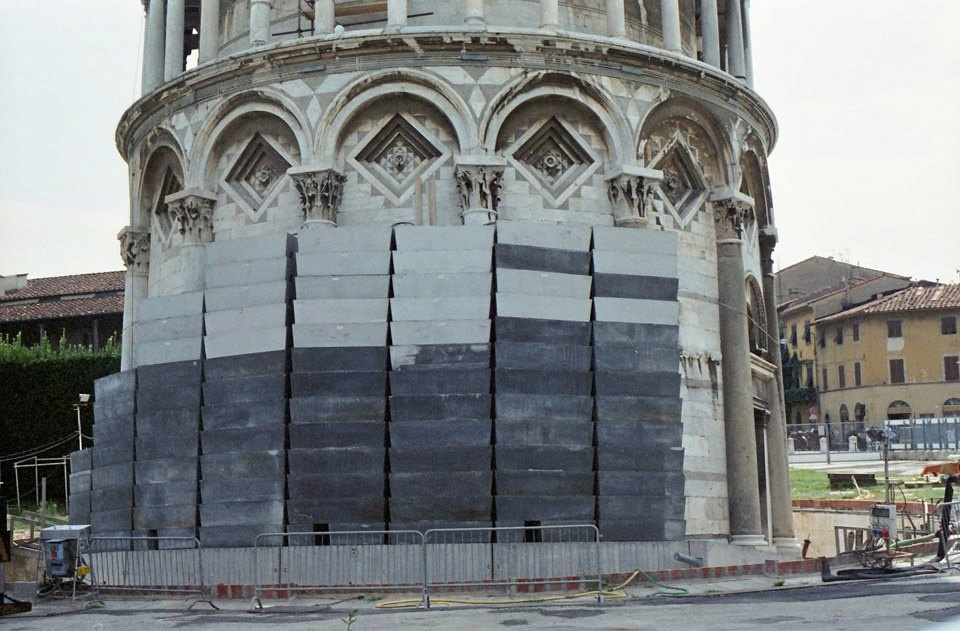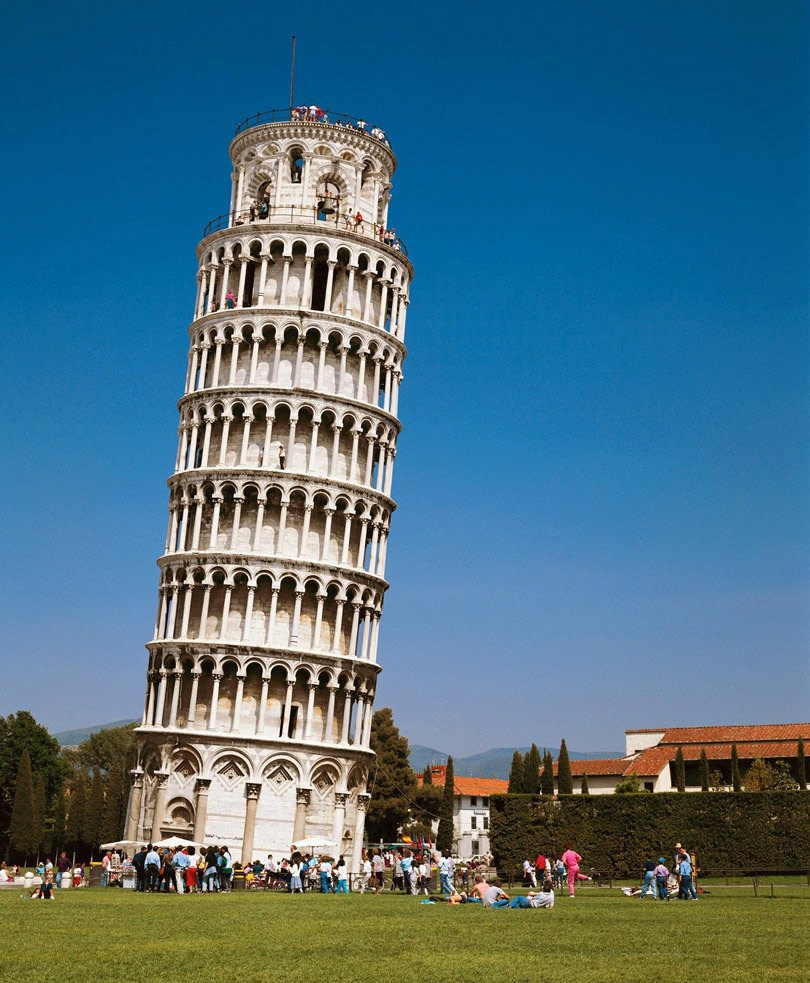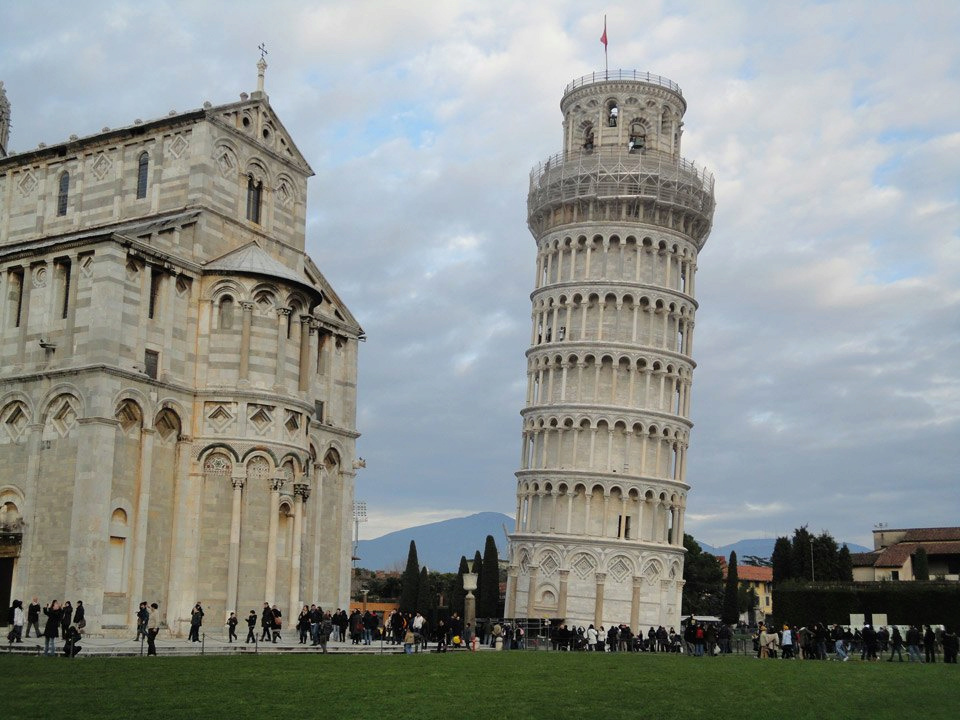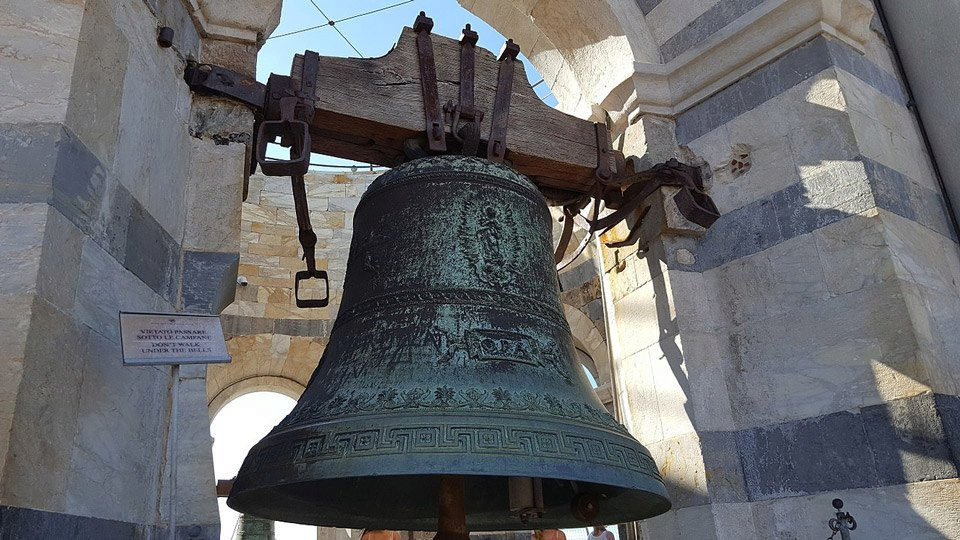25Facts about the Leaning Tower of Pisa, one of the most famous architectural mistakes
Italy was long ago famous for its beautiful architecture with many of its buildings today converted into monuments. This is evident in northern Italy, where first the Romans, and then the Catholic Church, began building the temples, cathedrals, and other structures that attracted crowds of tourists for centuries.
Ironically, in a field where there is so much competition, one of the most famous architectural buildings in the region, built in a way that has suffered from many errors, is the Leaning Tower of Pisa.
From the first stages of its construction, in the twelfth century, the bell tower - which belongs to the Cathedral of Piazza dei Miracoli in the Italian city of Pisa - was called the Leaning Tower of Pisa. To find out why this tendency exists, and discover more amazing facts about the Tower of Pisa, follow this article.
1. It is not possible to ascertain the identity of the real designer of the tower, but experts have nominated three names of potential designers.
The Leaning Tower of Pisa - Painting by Rauschenfels von Steinberg, 1830
2. Funding for the construction of the tower came from the spoils of war after the inhabitants of the city (Pisa) attacked the city (Palermo) in Sicily, which was under Islamic rule in 1063. They used what they harvested from the spoils of war to build the tower.
Photo: Vyacheslav Argenberg/GettyImages
3. The construction of the tower lasted for 199 years, as work began on it in 1173 and its construction was not completed until 1372.
4. The curved shape of the tower began to appear long before the completion of its construction, specifically when workers were completing construction work on the second floor in 1178.
Photo: ilbusca/GettyImages
5. The reason for the inclination of the tower is that the land on which it is built has soft spongy soil, so the soft, moist soil was not able to provide the necessary support to support the huge stone building.
Photo: Library of Congress
6. When workers noticed the tower's tilt, work on it stopped for nearly a hundred years (from 1178 until 1272).
Photo: Victor Ivanenko/GettyImages
7. The long period during which construction stopped helped prevent the tower from collapsing. During that period, the stone block that had been built before compacted the soil and made it more cohesive.
8. After the work resumed, the builders tried to correct the inclination by making each layer a little shorter than the sides, but this did not work.
Photo: JF Jarvis /Library of Congress
9. Initially, the tower tilted to the other side, and the workers' attempt to compensate for the tilt during the second phase of construction shifted the tower's center of gravity and tended to the south instead of north.
10. A lot of effort and money was spent in an attempt to change the direction of the tower's tilt. Between 1990 and 2001 it was closed so that workers could remove the soil trying to reduce the tilt to the south and make the tower tilt slightly to the north, to avoid its fall in the future.
11. The tower's tilt began to be measured periodically only a short time ago (starting in 1911).
12. The inclination increased so much in 1964 that the curved side became inclined by 5.18 meters from the center, and the incapable government at that time opened the door to accept any proposal to address the matter.
13. In 1995, engineers used liquid nitrogen in an attempt to freeze the soil under the tower to stop the tilt. The plan also included placing stakes in the ground, but it did not work and was quickly abandoned.
14. The tower is a small part of the Cathedral of Piazza Dei Miracoli, this sacred landmark includes many other churches.
15. It is not the only leaning tower in Pisa. The nature of the local soil caused many church spiers to tilt, including the bell tower of the Basilica of San Michele degli Scalzi, but they were not tilted enough to look good on postcards like the tower The famous.
Church (San Michele degli Scalzi) - Photo: Samuele Manfrin /Wikimedia
16. In fact, there are many leaning towers around the world, some of which are designed to be curved, others are bent due to other factors, but none of them came close to the fame of the Leaning Tower of Pisa.
The Great Al-Nuri Mosque in Iraq - the image on the right, and the Capital Gate tower in Abu Dhabi - the image on the left.
17. The Tower of Pisa is also not the most curved tower in the world. The church tower in Suurhusen in Germany tilts more, as is the case with many other towers that were designed to lean from its center.
Church tower in Suurhusen, Germany.
18. The well-known scientist (Galileo Galilei) was baptized in the complex of churches to which the tower belongs. He is said to have inspired his famous theory of pendulums from the method of swinging by the lanterns and bells of those churches.
Portrait of the famous scientist (Galileo Galilei) by Justus Sustermans - Photo: Wikimedia
19. The scientist (Galileo) may have used the tower in one of his most famous theories, as stories tell that he was throwing cannon balls and feathers from the tower to prove that objects of different weights fall at the same speed, but many researchers doubt the veracity of the novel.
Image: periodpaper . website
20. The fascist commander-in-chief (Mussolini) was about to destroy it, convinced that a leaning tower was not worthy of embodying the image of the fascist state, and tried to correct the tower's tilt by pouring concrete in the foundations, but the plan did not work and only made matters worse.
Fascist leader (Mussolini) - Photo: Stefano Bianchetti/Corbis via Getty Images
21. One man saved the tower from destruction during World War II. An American army officer named Leon Weckstein was about to give orders to destroy the tower, which was a stronghold of the Nazis, but himself did not authorize him to destroy something this beautiful.
Honoring Officer Leon Weckstein - Photo: Leon Weckstein 's website
22. Despite the tower's curvature, seven huge bells were installed at the top, the largest of which weighed 3.5 tons, which is one and a half times the weight of a rhinoceros.
One of the bells of the Leaning Tower (Photo: Jordiferrer / Wikimedia .)
23. Visitors can climb to the highest point of the tower, although this is dangerous, but it allows ticket holders to climb the stairs and head towards the top.
Highest point in the Tower of Pisa
24. The tower has stopped leaning more in recent years, thanks to ongoing restoration work since 1990, with no increase in curvature observed after 2008.
Photo: seng chye teo/GettyImages
25. Experts did not agree on whether or not the tilt would eventually cause the tower to fall. It had several moments when it came close to falling, but successful restorations prevented it.
https://dkhlak.com/25-tower-of-pisa-facts/?utm_source=Facebook&utm_medium=PostPlanner&fbclid=IwAR0jcR6ATHEJri0HAX2hEcUxes6gxtARMy5G4PFjAXTNfQJUWh4Dj1u8ars


